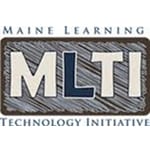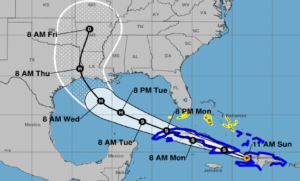Q&A: Jeff Mao Shares the Inside Scoop on Maine’s 1:1 Program

Jeff Mao, the Learning Technology Policy Director of the Maine Learning Technology Initiative (MLTI) at the Maine Department of Education, joins us today to chat about the ways that Maine forged the path of 1:1 learning with the first and only statewide 1:1 laptop program. He tells us more about the challenges the state faced, the ways the program has benefits students and educators, and how the program is evolving to adapt to the needs of the future.
Q: MLTI launched the first and only statewide 1:1 laptop programs in the fall of 2002. What were some of the challenges the state faced in introducing this new initiative statewide?
A: At the time, like any new and trailblazing effort, we had to invent solutions to new challenges on many fronts that no one had really dealt with before. There was no book on how to implement a 1:1 program, and I’m not sure such a book really exists today. We faced a huge professional development challenge. Not only did teachers and students need to learn to use the laptops and OS X (which was quite new at the time), but more importantly, we had to discover new ways of teaching and facilitating learning. We’re still doing this today, every day in classrooms across the state.
At the time, the Internet wasn’t what it is today. The wealth of resources available today just wasn’t available then. This was years before YouTube, Khan Academy, iTunes U, and Edmodo. It would be two years after we started that the term “Web 2.0” would enter the lexicon. Social media was not a glimmer in anyone’s eye. So, while everyone wanted to take advantage of the web, obvious solutions and compelling content were not as readily available.
On the technical front, working with Apple, we faced many technical challenges as well. Wireless networks were not common, and the idea of managing tens of thousands of laptop computers was scary, to say the least. Fortunately, while it hasn’t been easy, I think we’ve tackled many of the technical challenges. At least we have answers when issues arise! This allows us to focus our energy on the classroom and learning.
Q: Debate in education is still centered greatly around whether or not we should use technology in the classroom, which technologies should be used and how it should be integrated. How did Maine move beyond this discussion into one that focuses around 21st century learning leveraged with technology?
A: There are a couple key reasons that I think Maine has been able to get beyond the questions of “should” and to be focused on the “how.” First, MLTI’s first director, Bette Manchester made education the number one priority for MLTI from day one. Not that we didn’t spend a lot of time solving technical challenges, but she correctly made sure everyone understood that the real work was transforming teaching and learning. Second, under Bette’s leadership, teacher professional development in support of teaching and learning became the cornerstone of the MLTI. Further, the student was placed in the center. When you work from the student outward, and make learning the primary goal, everything else falls into place and is appropriately prioritized. In fact, a student centered system is at the core of the Department’s strategic plan [URL: http://maine.gov/doe/plan/].
Finally, I believe that our systemic approach to providing tools (aka the laptops) helped to accelerate the transition from seeing the laptops as cool shiny technology to “just part of the woodwork”. When you can truly make the technology ubiquitous, you can make the technology mundane.
Alan Kay said, “Technology is anything that was invented after you were born.” While today’s 7th graders were born in 1999, when they entered school, the program was already there. MLTI isn’t technology to them, and that’s how it should be.
Q: Maine sends out an RFP every five to six years to technology providers for the laptops it purchases for its students. How can increased private and public partnerships like this increase classroom innovation to the benefit of students and teachers?
A: The private sector is great at solving problems and finding ways to do things efficiently. If it wasn’t, it wouldn’t make money and there wouldn’t be a private sector, right? The American private sector succeeds because it innovates and is constantly trying to find new and better ways to do old tasks while it also constantly invents new solutions to new problems and processes.
The public sector is good at applying solutions to the benefit of all. I know some may argue with that, but as a public servant, I absolutely believe this. What the public sector isn’t so good at is inventing the solution because failure isn’t an option for us, and therefore we are risk averse. Schools are the same. They are risk averse because the stakes are high – they are entrusted with our nation’s children.
When we partner with the private sector, we get the best of both worlds. The public sector gets to leverage the innovative engine of the private sector to help solve public sector challenges. The RFP process is the perfect solution. We describe the challenge and what we need, and the private sector competes to provide a cost-effective solution.
Q: How can other states learn from Maine to develop 1:1 programs of their own?
A: We’ve coined a new phrase in Maine, “Edutourism”. The act of visiting a place with the sole purpose of learning more about its schools. Edutourism is alive and well in Maine, and we host educators from all over the United State and the world frequently who tour our schools, talk with our teachers and students, and simply observe how a 1:1 classroom can function. That’s one way, but I know not everyone can come to Maine (although I would encourage everyone to do so! We’ll make sure you get to eat a lobster while you are here).
We have many resources posted online including research, recordings of presentations about MLTI, and recordings of our weekly webinars for educators. All of this can be found on our web sites: http://www.mlti.org, http://www.maine121.org, and our iTunes U site, http://www.mlti.org/itunesu.
Q: Getting Smart Founder Tom Vander Ark often talks about the 3-device day on Getting Smart. Does Maine have a BYOD policy to enable students interested in learning with smartphones and tablets alongside their state-issued laptops?
A: Policies such as this are set at the local level, so there isn’t a statewide policy. However, I know that in most schools, students are allowed to bring additional devices to school. I believe that in Maine, there may not be as much of an emphasis on this as in other states because the availability of the MLTI devices. Cost is a driving factor in any technology-infused solution. The annual cost of a data plan and cell phone connectivity is twice that of the cost for the MLTI solution that includes the MacBook computer.
I completely agree with Tom that it won’t be long before many students and teachers are 3:1. I’m sure many of our students are already 2:1, a smartphone or iPod touch plus the MLTI device. I’m 3:1 as I carry a laptop, iPad, and an iPhone everywhere I go. In Maine, it may come sooner than in other places since we’re well down the road on the first of those three. Each have their advantages for learning, and I am very interested to see what choices our students will make when given so many options.
Q: As a technology leader in education, how does Maine envision the classroom evolving in the next decade?
A: A decade ago, Governor Angus King answered this question with MLTI. He was very willing to say he didn’t know exactly what the world would look like, but he knew technology was going to be an important part of the future. He liked to use the famous Wayne Gretsky quote about skating to where the puck is going to be. Taking a cue from Governor King, I think I can say that technology will continue to play a critical role in classrooms. But we have to remember that a decade from now, technology will not be anything we know today. Alan Kay once said, “Technology is anything that wasn’t around when you were born.” To today’s middle schoolers in Maine, having a laptop in school isn’t technology. MLTI was effectively invented before they were thinking about school and what it would look like.
It may be easier to say what I think will not be part of the classroom. Classrooms will not be driven by “covering content” in lockstep. Classrooms will not be organized around age cohorts. Classrooms will not be bound by four walls or by a bell schedule. Classrooms will not teacher centered.







0 Comments
Leave a Comment
Your email address will not be published. All fields are required.